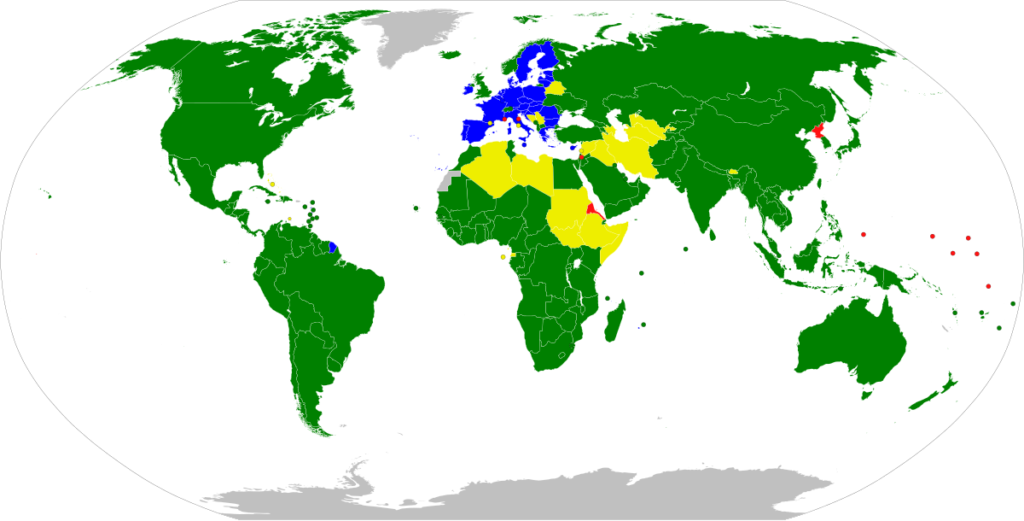
Introduction: A Global Commitment to Trade and Development
The World Trade Organization (WTO) stands at the forefront of global trade, with a clear mission to leverage trade for improving living standards, generating employment, and fostering sustainable development. It sets the rules for global trade to create a fair, open, and predictable environment that benefits all nations, role of the WTO in global trade and development regardless of their economic standing. By creating a framework for international trade, the WTO ensures that both rich and poor countries can participate in a system that promotes mutual growth and prosperity.
Founded in 1995, the WTO was created with the objective of making trade work for people and the planet. Over time, it has developed into a global institution that not only sets the rules for trade but also facilitates negotiations among over 160 member governments. These governments work collaboratively, assisted by the WTO Secretariat in Geneva, to maintain a system that fosters peace, development, and sustainable growth for all.
The organization’s core philosophy is built on the belief that trade can be a force for good, contributing to economic stability and social prosperity across the globe. Through fair and transparent trade agreements, the WTO aims to unlock the potential of global commerce, ensuring that nations can harness the power of trade to foster growth in diverse areas, from infrastructure development to environmental sustainability.
| Key Areas | Impact on Global Trade | Future Focus |
|---|---|---|
| Trade for Development | Lifting millions out of poverty | Strengthening global trade links |
| Sustainability | Promoting green technologies | Supporting decarbonization efforts |
| Trade Principles | Ensuring fairness and stability | Expanding services and digital trade |
| Market Access | Facilitating better access to global markets | Supporting free and open markets |
| International Collaboration | Fostering cooperation among member nations | Enhancing multilateral trade agreements |
| Global Economic Growth | Encouraging higher global trade volume | Ensuring equitable economic development |
Key Achievements: The Impact of the WTO on Global Progress
Over the past three decades, the WTO has been instrumental in transforming the global trading system, contributing to an era of unprecedented growth. With the support of the WTO, global trade has increased significantly, helping to lift over 1.5 billion people out of extreme poverty. This expansion of trade has not only improved the global economy but has also played a crucial role in enhancing the living standards of people across the world.
One of the most notable achievements of the WTO is the creation of the Fisheries Subsidies Agreement, which aims to eliminate harmful subsidies that negatively affect global fish stocks. By ensuring that trade policies align with sustainable development goals, the WTO has made significant strides in addressing environmental challenges and promoting fair trade practices. In addition, the organization has developed a comprehensive dispute settlement process, allowing countries to resolve trade disagreements in a fair and structured manner.
Furthermore, role of the WTO in global trade and development the WTO plays a critical role in facilitating global trade negotiations, where decisions are made by consensus. This structure ensures that all member nations, regardless of their size or wealth, have a say in shaping the direction of global trade. The organization’s ability to facilitate dialogues between diverse economies has led to agreements that promote peace, stability, and long-term development.
| Key Areas | Impact on Global Trade | Future Focus |
|---|---|---|
| Fisheries Subsidies | Promoting sustainability in fisheries | Expanding environmental agreements |
| Trade Dispute Settlement | Ensuring fair trade resolutions | Strengthening dispute mechanisms |
| Global Trade Negotiations | Ensuring inclusivity in decisions | Enhancing multilateral talks |
| Economic Empowerment | Boosting global employment | Promoting economic resilience |
| Technological Innovation | Encouraging advancements in trade technology | Fostering digital trade solutions |
| Environmental Responsibility | Reducing negative environmental impacts | Promoting green trade practices |

Principles of WTO: A Foundation of Fairness and Stability
At the heart of role of the WTO in global trade and development the WTO’s operations lies the core principle of non-discrimination. This principle ensures that trade privileges granted to one member country are extended to all other members. By promoting fairness in trade relations, the WTO has created a stable environment in which countries can confidently engage in international commerce. This stability fosters investment, job creation, and consumer benefits, ultimately leading to more competitive markets and better economic outcomes.
Another crucial aspect of the WTO’s principles is the promotion of transparency. All trade rules and negotiations are carried out in a manner that is open to scrutiny by member countries. This ensures that all stakeholders are aware of the agreements being made and have the opportunity to voice their concerns. Transparency not only builds trust but also enables countries to better align their domestic policies with international trade rules.
The role of the WTO in global trade and development WTO is also evolving in response to the digital age, where services trade, intellectual property rights, and digital advancements play an increasingly prominent role in global commerce. These elements are vital in an interconnected world, and the WTO’s ability to regulate and adapt to technological changes helps ensure that global trade remains fair and balanced for all participants.
| Key Areas | Impact on Global Trade | Future Focus |
|---|---|---|
| Non-Discrimination | Promoting fairness and equity | Enhancing equal trade opportunities |
| Transparency | Increasing trust among members | Strengthening open negotiation processes |
| Digital Trade | Integrating digital economies | Advancing regulation of digital assets |
| Member Collaboration | Fostering peaceful relations among countries | Encouraging inclusive global negotiations |
| Trade Stability | Ensuring predictable trade policies | Adapting to market and technological shifts |
| Inclusive Trade Practices | Addressing the needs of developing nations | Promoting economic empowerment for all |
Evolving Global Economy: Adapting to New Challenges
The global economy is continuously changing, and the role of the WTO in global trade and development WTO must evolve alongside these transformations to remain relevant. The organization’s mission, initially outlined in 1994, aligns with the United Nations’ sustainable development goals, aiming to use trade as a tool for improving the quality of life worldwide. Trade has the power to address pressing global issues such as food security, climate change, and sustainable development, and the WTO is committed to facilitating solutions that promote long-term growth.
As the world grapples with the challenges of decarbonization and economic crises, the WTO’s ability to adapt is critical. Through promoting green technologies and supporting nations in their transition to low-carbon economies, the WTO plays a vital role in creating a sustainable future. By helping countries adopt clean energy solutions and reduce emissions, the WTO ensures that trade contributes to a healthier planet.
The evolving nature of global trade requires the WTO to continuously assess its impact and adjust its policies to address the changing needs of the global economy. This includes fostering innovation in sectors like digital trade, renewable energy, and sustainable agriculture, all of which will be essential in the years to come.
| Key Areas | Impact on Global Trade | Future Focus |
|---|---|---|
| Sustainable Development | Promoting global well-being | Advancing climate-friendly policies |
| Green Technologies | Facilitating clean energy growth | Supporting innovation in sustainability |
| Global Trade Adaptation | Helping countries evolve in trade | Preparing for digital economy shifts |
| Economic Resilience | Strengthening global financial systems | Building financial safety nets for vulnerable economies |
| International Cooperation | Encouraging global collaboration on climate issues | Promoting eco-friendly trade policies |
| Trade Diversity | Expanding trade opportunities across sectors | Broadening the scope of trade agreements |

WTO Membership and Support for Developing Economies
The WTO operates as an inclusive organization, offering any country the opportunity to apply for membership and negotiate terms for joining. Currently, over 75% of WTO members are developing or least-developed countries, and they are reaping the benefits of expanded markets and greater integration into global supply chains. Membership in the WTO opens doors to new trade opportunities, allowing developing nations to participate in global markets and benefit from economic growth.
In recognition of the challenges faced by developing economies, the WTO provides special provisions to support these nations. These provisions grant them additional time to comply with new obligations, ensuring that they can gradually integrate into the global trading system. Furthermore, the WTO offers technical assistance and training programs to enhance trade capacity, empowering countries to strengthen their economies and improve the livelihoods of their populations.
The WTO also plays a vital role in fostering inclusive trade policies that promote economic empowerment, particularly for women and small businesses. By supporting these groups, the WTO helps ensure that the benefits of trade reach the most vulnerable segments of society, contributing to more equitable development.
| Key Areas | Impact on Global Trade | Future Focus |
|---|---|---|
| Developing Economies | Increasing market access for small nations | Fostering economic integration |
| Capacity Building | Helping countries improve trade infrastructure | Strengthening technical assistance programs |
| Inclusivity | Promoting equitable growth | Enhancing support for women and small businesses |
| Technology Transfer | Enabling knowledge sharing | Supporting digital capacity building |
| Trade Negotiations | Empowering nations to negotiate better terms | Fostering more equal trade dialogues |
| Infrastructure Development | Helping countries develop vital trade infrastructure | Ensuring sustained economic growth |
Looking Ahead: A Vision for the Future of Global Trade
As we look to the future, the multilateral trading system has made significant progress, but there is still much work to be done. The key focus moving forward is ensuring that all countries, especially developing nations, benefit equally from trade. The WTO is committed to fostering a more inclusive trade system that leaves no country behind.
The future of global trade lies in services, digital advancements, and green technologies. role of the WTO in global trade and development recognizes the importance of these sectors and is working towards creating a trade environment that supports innovation and sustainability. As trade continues to evolve, the WTO will remain at the helm, guiding nations toward an equitable and prosperous future.
Looking ahead, the WTO’s vision includes ensuring that global trade systems are adaptable, resilient, and capable of addressing emerging global challenges, such as climate change and digital transformation. The future will see more interconnected global markets, and the WTO is positioned to help steer this transition effectively.
You Might Also Like
- What Is BRICS and How Could It Challenge the US Dollar?
- What is NATO? NATO Founding Principles Global Expansion
- What is the UN Pact for the Future? Power Vetoes Global Impact
| Key Areas | Impact on Global Trade | Future Focus |
|---|---|---|
| Inclusive Trade | Making trade accessible to all | Ensuring equal benefits for all nations |
| Digital Economy | Strengthening the role of digital markets | Advancing trade technologies and tools |
| Sustainable Practices | Contributing to long-term sustainability | Ensuring future trade adapts to global challenges |
| Economic Interdependence | Strengthening global interconnectedness | Promoting international cooperation |
| Trade Innovation | Encouraging innovation in trade policies | Supporting tech and digital transformations |
| Global Market Access | Expanding market access worldwide | Fostering regional economic collaborations |



